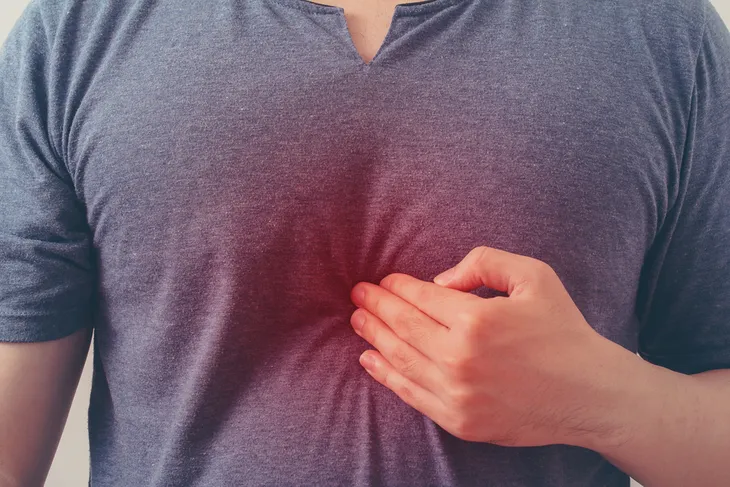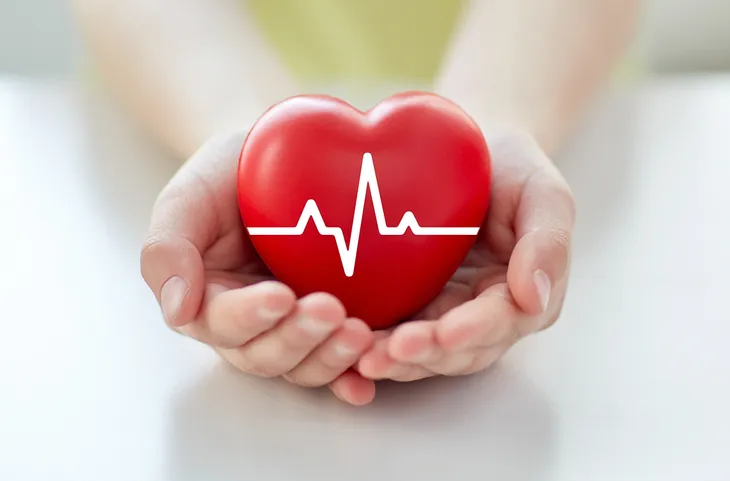Today, heart disease is one of the most prolific killers in North America. To combat this disease, doctors recommend patients make considerable changes to their lifestyle, such as adapting their diet and level of physical activity, and often prescribe medications to help the heart overcome certain kinds of difficulties.
But, how do you know if you have a health problem related to heart disease? The answer involves being on the lookout for a number of critically important symptoms that, if addressed early enough, could help save your life. Identifying these signs is particularly important if you have a family history of heart disease.
Chest Pain
This is easily the most common symptom of heart disease (clinically referred to as angina), and the sign that should lead to the fastest reaction. That’s because significant chest pain can be the body’s way of sounding an alarm that there is a serious health problem, including the nearly complete or complete blocking of an artery in the heart.
Chest pain can result from physical exertion or a sudden spike in stress levels. In any case, the feeling can be described as a pinching, squeezing, or burning sensation inside the chest to a crushing pain just beneath your breastbone. Many individuals describe a feeling of enormous pressure, almost like a large animal (such as an elephant) has sat right on top of them. In any case, significant pain and discomfort in the chest area should elicit an immediate response from an individual, particularly if they’ve already been diagnosed with heart disease or have a family history of heart disease.
Upset Stomach
One early sign of a heart attack (referred to clinically as a myocardial infarction) that isn’t as well known is upset stomach. This is probably because nausea is so frequently tied to a wide variety of health issues, from the flu to food poisoning. But in reality, it can be a clear sign that something is wrong with the heart.
Should you have an upset stomach prior to or during a heart attack, you may find yourself vomiting. This symptom should be more alarming if you know for certain that your last meal shouldn’t have caused any problems. It’s also worth noting that women are more likely to experience upset stomach related to heart disease as compared to men.
Heartburn
In most cases, heartburn has virtually nothing to do with the heart. Generally, it refers to acid reflux, or the abnormal release of stomach acid into the esophagus. It’s usually related to the food recently consumed by an individual and typically has nothing to do with the heart.
But, occasionally heartburn can be a clear sign that there are problems with the heart that need to be addressed as soon as possible. Some people, especially those individuals who haven’t had heartburn frequently in the past, are quick to dismiss the problem as simply heartburn, when in fact it could be chest pain related to heart disease. In any case, individuals diagnosed with heart disease should take note of heartburn and discuss the matter with their doctor right away.
Arm Pain
Aside from chest pain, another common sign of a heart attack is pain that radiates down the arm. In most cases, this pain travels across the chest and down the left side of the body, including the arm.
This pain can be caused by a blocked artery in the heart, which may also cause significant discomfort in the chest. If you have a family history of heart disease or have been diagnosed with heart problems, you should take this sign very seriously and contact your doctor or visit the hospital immediately.
Dizziness
Virtually everyone has felt dizzy from time to time. Often, all it takes is standing up very quickly after sitting down for a prolonged period of time. Feelings of dizziness can also result from spinning around quickly, such as when you whirl about on a theme park ride, or by engaging in an activity your brain isn’t quite used to, such as playing a virtual reality game.
But, you shouldn’t feel dizzy just sitting down or walking along in a normal fashion. A sudden, unexplained bout of dizziness could be a sign that your blood pressure has dropped as a result of difficulty with your heart, including its inability to pump in an effective way. Should this sign emerge, it’s time to contact your doctor, especially if you’ve already been treated for heart disease-related issues.
Pain in the Neck or Jaw
Neck and/or jaw pain can result from a wide range of health issues, from dental problems to a head cold or sinus infection. If you’ve struggled with any of these issues in the recent past, it’s probably not worth worrying about noticeable discomfort in this part of the body.
However, if you’ve been diagnosed with heart disease or have a family history of heart problems, this should sound an alarm. This is because pain in the throat or jaw can emerge if there’s a problem with the heart, including a heart attack. If this happens to you or someone you know, call 911 right away.
Rapid Fatigue
A long day of work, whether your job is physically or mentally demanding, can easily leave one feeling very fatigued. This can also be the result of working out for an extended period of time or after carrying out a particularly intense activity, such as sprinting with maximum effort.
But, what if there’s no reason for your sudden fatigue? What if you haven’t had a long work day and haven’t recently done anything physically demanding? This may be a sign that there’s something wrong with your heart. The good news is that this may not have anything to do with your heart, although to be safe it’s best to make an appointment to see your primary care doctor.
Heartbeat Irregularities
Many people struggle with an irregular heartbeat (clinically referred to as arrhythmia) on occasion; sometimes it can be the result of simply getting excited or finding out something that makes you particularly nervous or anxious or something that elicits a powerful emotional response.
But the issue becomes a problem when this happens more frequently and for longer than several seconds. If you feel like your heart is beating irregularly, meaning it skips a beat fairly frequently, you should talk to your doctor about what this may mean for you and your heart. It could be a symptom of a structural issue affecting the heart, or it may simply be a sign that it’s time to lower your consumption of caffeine.
Excess Perspiration
Excessive sweating may be the least concerning symptom of heart disease on this list, because it can be the result of a wide variety of health issues. For example, some people are genetically predisposed to sweat more than others.
But such sweating should be tied to some kind of physical exertion, such as working at the gym or playing an active sport (such as basketball or hockey). Should you find yourself sweating profusely for no apparent reason, this could be a sign of a heart attack. Should you have heart-related problems in your family history, then take this as a clear sign that something’s wrong and dial 911 right away.
Nagging Cough
Virtually no one is unfamiliar with the sound of a nagging cough, especially during cold and flu season. In offices, classrooms, and other public places, it’s quite common to hear at least a few people visibly struggling with a cough that just won’t go away. For the most part, this is not a sign that anything serious is wrong with the afflicted individual.
But if that person has a family history of heart disease or has been diagnosed with heart-related health problems, then it could be a sign of serious trouble. This is especially true if the nagging cough in question produces a mucus that is white or pink, which could be a sign that the heart is struggling to keep up with the demands of the body (and may be failing). In fact, mucus can take on a pink hue because blood is leaking into the lungs.
Swollen Legs and Feet
A number of conditions can lead to swelling in the lower extremities, including the feet; for example, pregnant women often experience this as a result of carrying more weight than they’re used to. Of course, experiencing some kind of injury to your lower body can also lead to swelling in the legs and feet.
But swollen legs, feet and ankles can also be the result of heart problems, including the inability of the heart to properly pump blood to the lower part of the body (e.g., congestive heart failure). The result is blood backing up in this area, thereby causing the veins to swell and bloat. Superficially, this can look like swelling and should be addressed in a conversation with your family doctor.
Regular Snoring
Snoring is a fairly common issue, particularly when it comes to middle-aged people with breathing troubles or problems with obesity. Put simply, if you have any issues sleeping, there’s a good chance you’re also a snorer.
But loud snoring may also be a sign that your heart is in danger. That’s because snoring can often be the result of sleep apnea, a condition whereby an individual wakes up (many times) during the night as a result of breathing difficulties and may even have brief periods where they cease to breathe when sleeping. It should be noted that not every person who snores has sleep apnea. Experiencing this problem on a regular basis can put excess strain on the heart and may lead to significant heart-related issues. To be safe, talk to your doctor about getting tested for sleep apnea.















